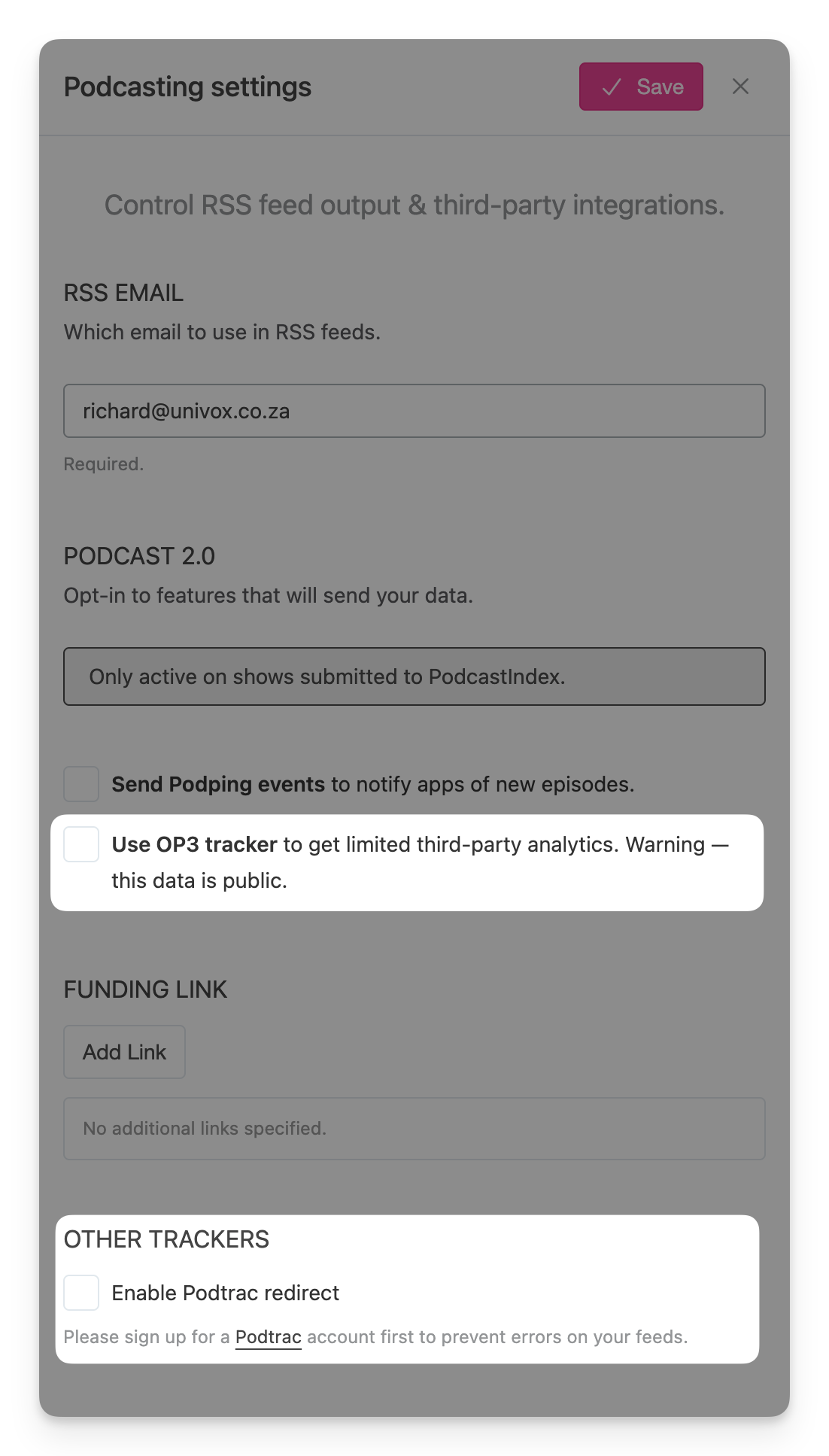Third-party podcast trackers uses the HTTP redirect functionality so that any request for an audio file goes to their servers first, before redirecting back to our servers. This allows them to track when a file is requested by an end-user, while redirecting back to our platform to serve the actual file.
Our platform supports these podcast tracking platforms:
Enabling trackers
To enable this functionality, use the "Settings" button on the main Podcasting page of the publisher dashboard.

Updated output
After saving this configuration, the tracker prefix(es) will automatically be inserted for all podcast URL's:
- In our web player.
- In RSS feed
enclosurefields. - In "download" links on our website.
For example, an enclosure in the RSS feed may look like something this without any tracker enabled:
https://dl.iono.fm/epi/prov_1/epi_123_medium.m4a
But after enabling Podtrac and inserting a Chartable ID, it will be updated to:
https://dts.podtrac.com/redirect.m4a/dl.iono.fm/epi/prov_1/epi_123_medium.m4a
OP3 tracker
We also support the OP3.dev tracker, a free and open-source podcast prefix analytics service committed to open data and listener privacy. It works similar to our existing Podtrac and Chartable support by adding a prefix to all audio URLs.
It is enabled under the Podcast 2.0 section of the publisher config.
❗OP3.dev prefixes will only be added on shows that are linked to PodcastIndex.